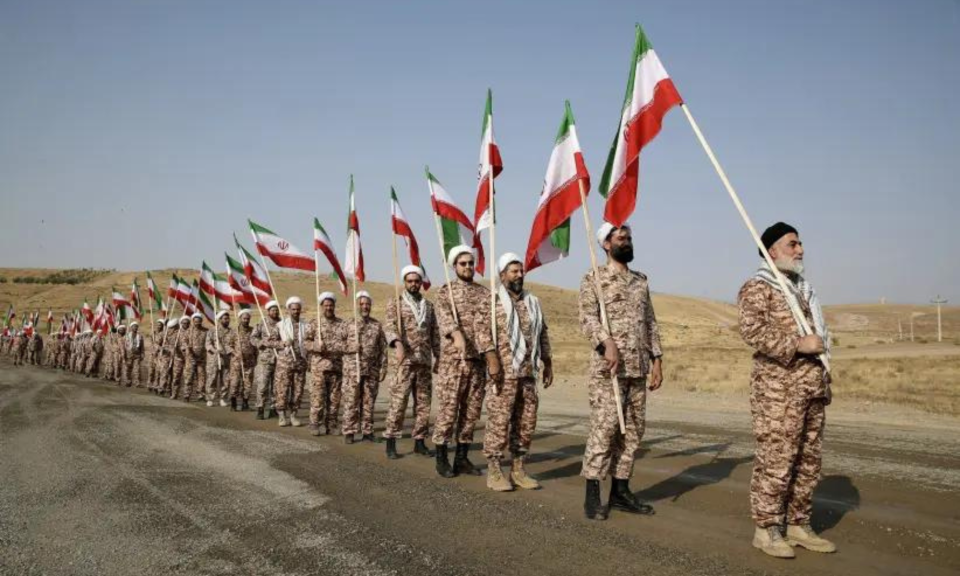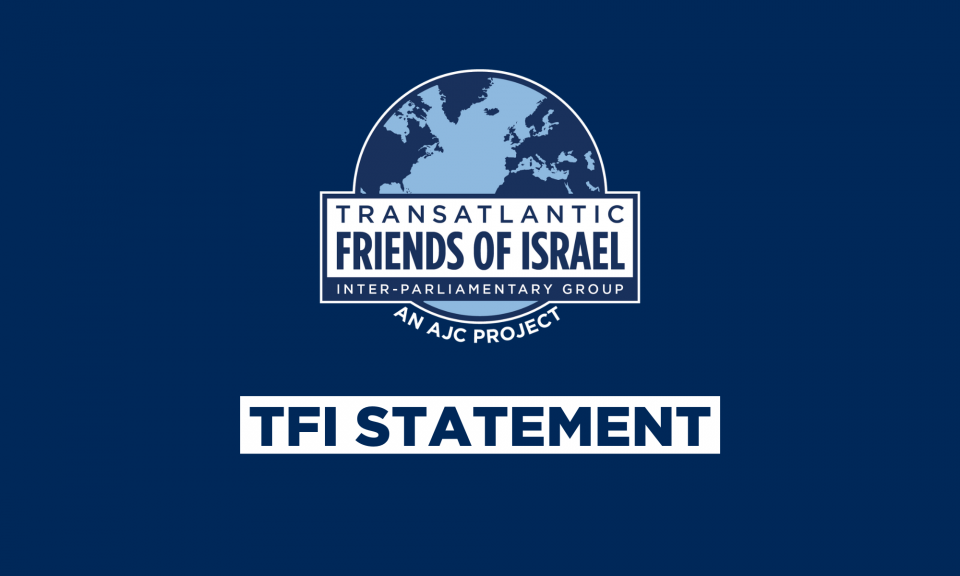Analysis
The Economist and its "Auschwitz Complex"
By Daniel Schwammenthal
The Economist’s 19th century founder, Scottish hat maker James Wilson, once quipped "that reason is given to us to sit in judgment over the dictates of our feelings." Sadly, when it comes to discussing the Jewish state, some of Wilson’s heirs tend to drop their thinking hats and are all feelings—but not of the warm and fuzzy kind.
Take the recent online article, originally published under the headline “Auschwitz Complex,” discussing Israel, Iran and America. Apart from portraying Israel as an imperialistic, war-mongering, mentally unstable society, the Jewish state allegedly also attempts to drag the U.S. into “increasingly delusional and dangerous projects whose disastrous results seem only to legitimate their paranoid outlook.” That’s what passes for “authoritative insight and opinion” at the esteemed Economist these days.
The article’s author, identified only as M.S., starts off by claiming that Israel has less control over its own destiny than Portugal or Britain because, get this, “unlike those countries, Israel refuses to give up its empire.” It surely must be news to Israelis that their country, about the size of Wales and controlling parts of a neighboring territory a quarter of its own small size, qualifies as an “empire,” just like the one on which the sun famously never set.
But it’s not just the dimensions that make this comparison nonsensical. Unlike Portuguese and British colonialists, Israel did not venture out half way across the world to amass far-flung civilizations to maximize its power. Instead, it conquered the West Bank, just a half-hour drive from Tel Aviv, in a defensive war to secure its mere survival. It immediately offered to return the territories in exchange for peace (which the Arabs rebuffed), even though unlike, say, some subarctic island off the coast of South America, the West Bank and Gaza are neighboring territories with serious security implications for Israel and deep historical connections for the Jewish people. The Economist also chose to ignore that Israel already left Gaza in 2005 despite warnings, which were sadly proven correct as we have seen again this week, that Palestinian terrorists would turn the strip into a launching pad for rocket attacks against Israeli civilians.
For the Economist, Israel is “immobilized,” unwilling to make peace. “For over a decade, the tone of Israeli politics has been a mix of panic, despair, hysteria and resignation.” The fact is that this is exactly the period when Israeli prime ministers have made not one but three far-reaching offers to end the conflict. The Palestinians ignored or outright rejected these peace plans.
But facts matter little in the Economist’s revisionist account, where only one side is apparently responsible for the lack of peace and, supposedly, “no-one bears greater responsibility for the trap Israel finds itself in today than Mr. Netanyahu.” That’s the same Mr. Netanyahu, by the way, who during his previous term signed the Wye River Memorandum in 1998, transferring control of significant parts of the West Bank to the Palestinian Authority.
So why is the conflict still going on? “Violent clashes and provocations erupted whenever the peace process seemed on the verge of concrete steps forward,” the Economist explains. And, as Journalism 101 courses explain, the passive voice erupts whenever the journalist is trying to obscure the truth. Violence did not spontaneously or anonymously break out, as the article suggests.
The perpetrators and victims can be both named. Whenever Israel made concessions toward peace, Palestinian terrorists, with more than an approving wink from Yasser Arafat at the time, chose to murder Israeli men, women and children in buses, pizza parlors and Passover gatherings. The Economist does eventually mention Palestinian terrorism, however not to condemn it, but rather Israel. The Jewish state apparently did not show enough “restraint,” i.e. willingness to have its people butchered. According to the Economist’s logic, Israeli self-defense is evidence that Israel is not “truly interested in progress towards a two-state solution.”
The article then turns to its other main theme, Iran. Without feeling the need to cite even a shred of evidence, M.S. declares that the Iranian threat to Israel is both “overstated” and militarily impregnable. Instead of real news analysis, the Economist offers pseudo psychoanalysis:
“Having trapped themselves in a death struggle with Palestinians that they cannot acknowledge or untangle, Israelis have psychologically displaced the source of their anxiety onto a more distant target: Iran… Iran makes an appealing enemy for Israelis because, unlike the Palestinians, it can be fitted into a familiar ideological trope from the Jewish national playbook: the eliminationist anti-Semite.”
In other words, Israel’s concerns are part pathological (psychological displacement), part cabal, as in “ideological trope from the Jewish national playbook.”
It takes a twisted mind to accuse Israel of paranoia and devious scheming with respect to Iran in light of the abundance of evidence that the regime in Tehran is indeed a serious danger to Israel.
Just a brief recap for our friends at St James's Street: The Islamic Republic has made violent anti-Semitism part of its state policy is led by religious fanatics who believe that the return of a Shia messianic figure could be triggered by an apocalyptic event arms, funds and trains Israel’s enemies killed Israeli diplomats and Jews abroad repeatedly threatened to destroy Israel and openly muses about how many nuclear bombs would be needed to make good on these threats while developing such weapons.
Betraying their profound ignorance, the author and his/her editors can’t even insult Israelis “correctly.” The article concludes by accusing Mr. Netanyahu of a “Ghetto mentality” for what the Economist considers reckless saber rattling over Iran’s nuclear program. But “Ghetto mentality” has the exact opposite meaning, used to denigrate Jews who supposedly try to appease their enemies by laying low.
If this were just your run-of-the-mill radical right- or left-wing rag, where you normally would expect to read such anti-Israel rants, it wouldn’t be worth mentioning. But the Economist “is read by more of the world's political and business leaders than any other magazine,” the newspaper boasts. And a week after its publication, the column is still the magazine’s most recommended and commented piece online.
Late Tuesday afternoon, the Economist changed the headline “Auschwitz complex” to “Masters of their fate?” with an editor’s note stating that “[T]he original headline of this blog post was inappropriate and has been changed at the instruction of the editor in chief. No offence was intended and we apologise unreservedly.” That’s a start, but unfortunately the entire article is inappropriate and offensive, requiring an unreserved apology.
In some ways, this half-hearted retreat makes matters even worse. The editor in chief himself takes a second, careful look and still finds nothing objectionable with the body of the text. The Economist now truly owns this gem.
Daniel Schwammenthal, formerly a comment page writer and editor at the Wall Street Journal Europe, is the Director of the AJC Transatlantic Institute in Brussels.









